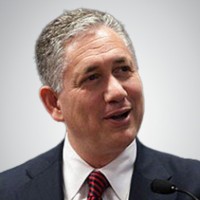Stuart Piltch insurance: Enhancing Healthcare with AI For Better Diagnosis and Treatment
Stuart Piltch insurance: Enhancing Healthcare with AI For Better Diagnosis and Treatment
Blog Article

Artificial Intelligence (AI) is really a transformative power across various industries like healthcare. By using calculations and equipment learning practices, AI revolutionizes the way diagnoses and treatments are administered, as to the way the Stuart Piltch philanthropy is being for healthcare is being done. Listed here is how AI is increasing healthcare systems.
Early Detection of Diseases
AI-powered resources succeed in examining medical pictures such as X-rays, MRIs, and CT tests with amazing precision. These tools may recognize habits and defects that could be missed by individual eyes.
From that, they could do early recognition of disorders like cancer, heart conditions, and neurological disorders. AI methods have shown large accuracy in sensing early-stage tumors, permitting appropriate treatment and considerably increasing success rates.
Predictive Analytics
Predictive analytics driven by AI may examine individual knowledge to estimate particular conditions. By analyzing historic wellness information and distinguishing risk facets, AI provides early warnings, letting healthcare suppliers to implement preventive measures. This practical strategy assists in controlling chronic disorders more successfully and reduces the burden on healthcare systems.
Designed Therapies
AI allows the formation of customized therapy ideas centered on a patient's details. By analyzing large levels of information, AI can suggest the most truly effective treatment options, minimizing trial and error.
This is very helpful in areas like oncology, wherever customized medication may result in better-targeted solutions and less area effects.
Enhanced Drug Growth
AI accelerates drug development by considering natural data and predicting how new substances talk with the body. This helps in determining encouraging medicine candidates quicker and with larger accuracy. AI can streamline scientific tests by matching people with suitable trials.
Structured Workflow
AI-driven automation are designed for routine administrative tasks, such as for instance arrangement appointments, controlling individual documents, and handling insurance claims. That decreases the workload on healthcare staff, allowing them to concentration more on patient care. AI programs can provide real-time ideas into hospital operations.
Rural Monitoring and Telemedicine
Finally, AI-powered rural monitoring resources help constant remark of patients' vital signs. These instruments can alert healthcare companies to possible problems before they become critical. Telemedicine programs improved with AI also aid virtual consultations. This could produce healthcare more accessible to people in distant areas.
From automating routine tasks to enhancing decision-making processes, AI technologies enable companies to operate more effectively and remain competitive. Here’s how AI programs by the likes of Stuart Piltch ai is reshaping business operations. For more information please visit Stuart Piltch grant.
Report this page